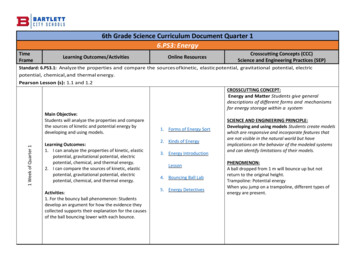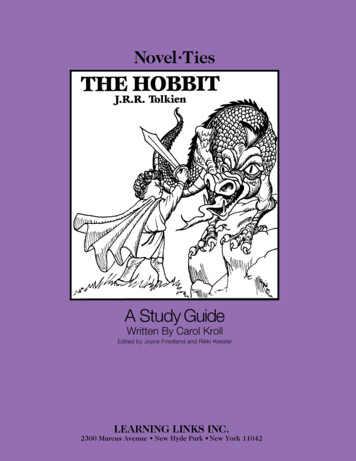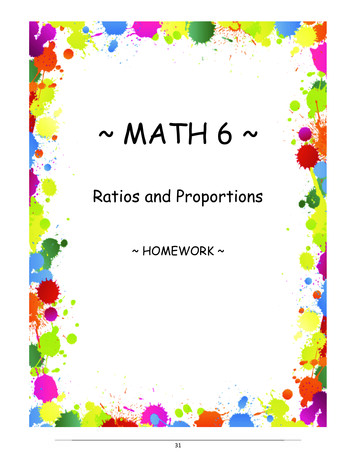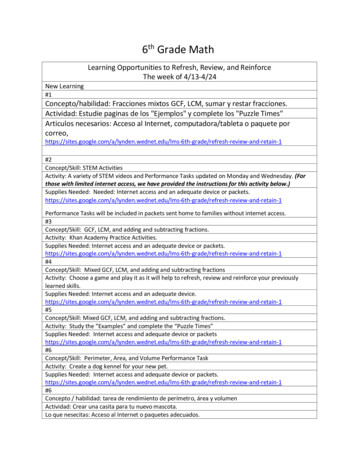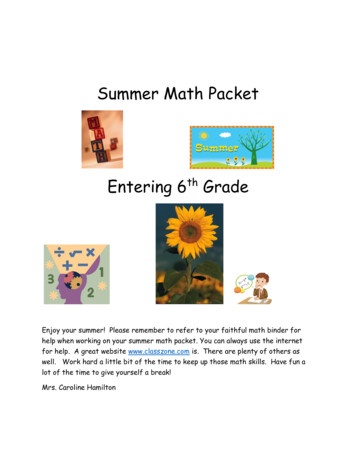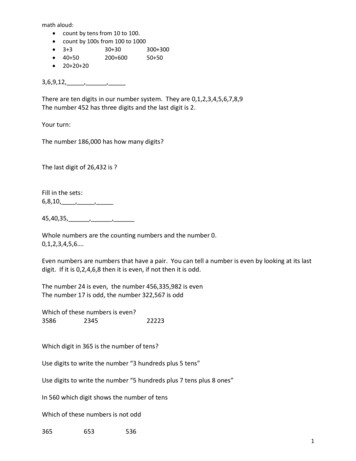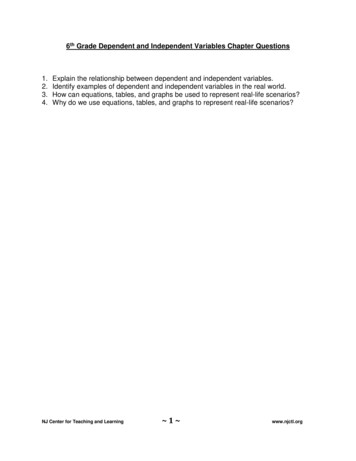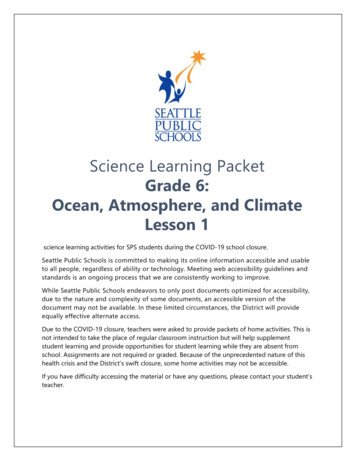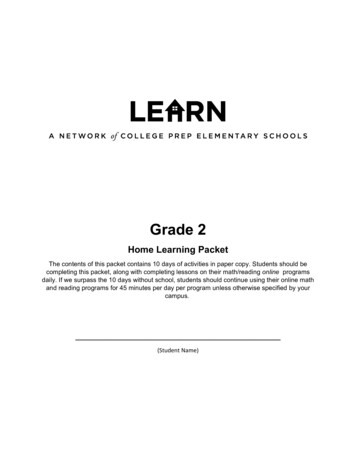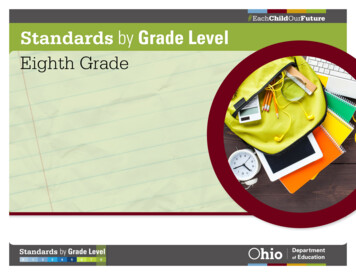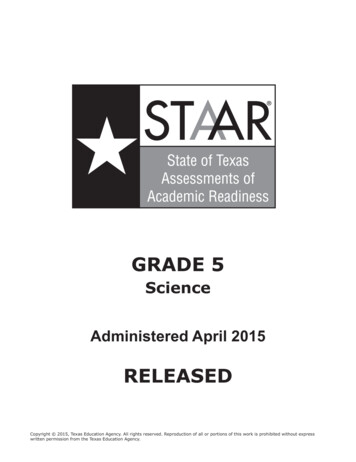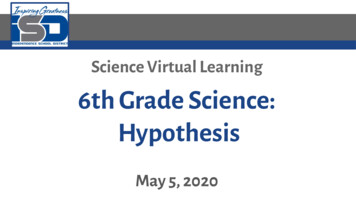
Transcription
Science Virtual Learning6th Grade Science:HypothesisMay 5, 2020
6th Grade ScienceLesson: May 5, 2020Objectives/Learning Targets:Students will be able to explain the purpose and write atestable hypothesis.
Warm Up:What do you think will happenwhen Coca Cola & Milk are mixedtogether?Watch this video to find out!You can also try this out at home if youhave the materials!
Background Information:In the warm up, you created a very basic hypothesis - What did you think wouldhappen based on a scenario?A hypothesis is a testable answer to a scientific question. Once a scientist has ascientific question they are interested in, the scientist researches what isalready known on the topic. Then, they use that information to form a tentativeanswer to their scientific question. Sometimes people refer to the tentativeanswer as "an educated guess". Keep in mind the hypothesis also has to betestable since the next step is to do an experiment to determine whether or notthe hypothesis is supported!"If [I do this] , then [this] will happen, because ."
Example Hypotheses: If 7th graders and 8th graders complete the same math problems, then the8th graders will get more answers correct, because they have studied mathfor one year longer than the 7th graders. If dry bread and moist bread are left in bags for two weeks, then the moistbread will grow mold more quickly than the dry bread, because mold is aliving organism, and organisms need water to survive. If some students eat breakfast before school and others do not, then theones who do eat breakfast will have better grades in their morning classes,because their brains have more energy to think.
Practice:Read the Readworks article &answer the questions about thescientific method & creating ahypothesis. The answer key isincluded.
Practice:Write a hypothesis about the following situations:1.Mr. Montanari has noticed that there is a wide range of grades that students geton tests, even though they are all in the same class. He wonders whetherstudents, who study for 20 minutes per night, every night, get higher scores ontests or not. Mr. Montanari wants as many kids to be successful as possible.2.The cooler the temperature in a lake, the more oxygen the water holds. Danielnotices that he catches more fish in a lake that is cooler than 55 degrees. Hewants to conduct a study so he can catch the most fish possible this year.
Practice - Answer Key1. If students study 25 minutes per night, then they will receivehigher scores on their tests.2. If the temperature in the lake is 45 degrees, then Daniel willcatch the most fish this year.
Additional Practice1. IXL developing a hypothesis. Please complete the five freepractice questions, you do not need to log in.2. Test your knowledge with this quizizz.3. Check out this song about Hypotheses!
6th Grade Science Lesson: May 5, 2020 . If 7th graders and 8th graders complete the same math problems, then the 8th graders will get more answers correct, because they have studied math . students, who study for 20 minu
